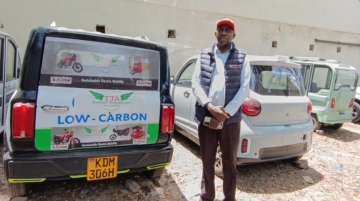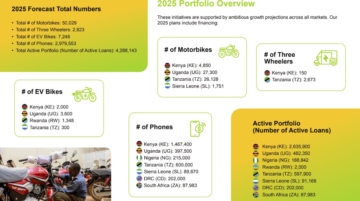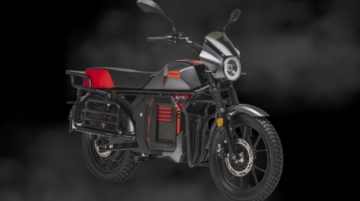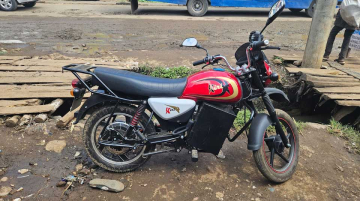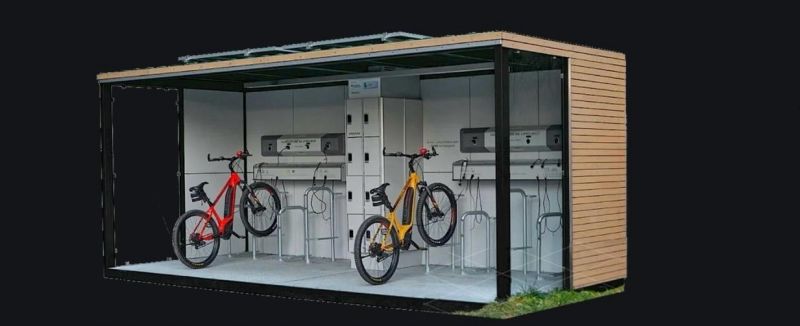
This is a free preview of the upcoming Africa EVs Weekly Digest, part of the new CGSP Intelligence service.
Africa’s electric mobility sector is gathering momentum, with new business models and infrastructure investments reshaping the landscape. In Kenya, the launch of the country’s first EV-specific insurance cover marks a crucial step toward mainstream adoption.
Across the continent, new entrants are redefining local markets with new electric models targeting urban commuters and the ride-hailing sector. At the same time, homegrown startups show growing efforts to localize EV production and adapt designs to African road and consumer realities.
Chinese giants are considering vehicle assembly operations in African countries to reduce costs and compete with established automakers, as initiatives combining renewable energy and inclusive job creation become more prevalent.
This week on EVs in Africa:
Kenya’s EV-Specific Insurance Cover Launched
A Kenyan insurer introduced an insurance plan tailored for fully electric and hybrid vehicles. The plan provides protection for the battery and electric motor system. Other benefits include coverage for personal charging equipment and an out-of-charge recovery service, which tows stranded vehicles to the nearest charging station.
Why This Matters: This comes at a time when insurers in China are incurring losses despite EV owners paying higher premiums than those for gasoline-powered cars. With Kenya’s EV penetration still very low, the growth of these numbers will determine how the insurance and EV sectors evolve, likely forcing a re-strategizing or an overhaul driven by how the sector develops.
FAW Nigeria Unveils Electric Vehicles In Lagos
Chinese automaker First Automobile Works (FAW) has introduced a new range of electric vehicles to the Nigerian market, featuring the compact FAW MiniEV and the larger MPV EV.
The MiniEV, designed for urban commuting, offers a driving range of about 220 kilometers and a top speed of 100 kilometers per hour. The MPV EV, a more powerful model, has a range of 425 kilometers on a single charge.
Why This Matters: FAW’s latest lineup reflects a strategic shift toward smaller vehicles, driven by the rising demand for ride-hailing and last-mile delivery solutions in Nigeria’s fast-growing cities. The company’s partnership with Audi also gives it an edge to scale to other models targeted at the Nigerian market.
Building Soweto’s First Solar-Hybrid Charging Hub
SHOVeBIKE, an urban mobility startup based in South Africa, has signed a uYilo Kick-Start Funding Agreement to develop the first solar-hybrid charging hub at Dobsonville Mall in Soweto, a township in Johannesburg.
The flagship hub aims to energize a township delivery network, generate local jobs, and help build the foundation for a cleaner, more inclusive energy economy in Soweto.
Why This Matters: South Africa’s EV charging network building has so far concentrated on four-wheelers. SHOVeBIKE is getting into the space as electric delivery bikes are gathering pace in the country, integrating renewable energy, green logistics, and township enterprise..
First Cross-border EV Convoy From Nairobi to Addis Ababa
Last Sunday, Africa’s first cross-border EV convoy left Nairobi for Addis Ababa, Ethiopia.
Dubbed the “Road to Addis”, it is meant to showcase the opportunities and challenges of electric transport in Africa.
Why This Matters: With temporary charging stations set up along the route, the success of the trip will demonstrate the viability of EV travel across borders. In addition to upfront costs hindering adoption, the lack of charging infrastructure adds challenges for EV buyers. The trip could help the establishment of a counter-narrative.
GWM And Chery Mulling Vehicle Assembly Plans in South Africa
Chinese automaker Chery plans to establish a completely knocked-down assembly plant in South Africa within the next three to six months, while GWM is in discussions with South African partners to explore joint pickup truck production.
Why This Matters: While the two companies are definitely targeting lower costs and better profit margins, competition from other automakers, such as Toyota and Stellantis, means the Chinese automakers must think beyond dealerships to remain competitive in South Africa’s cutthroat auto market.
Nigeria’s EV Startup Kemet Automotive Joins Electric Mobility Race
Kemet’s ambitious lineup includes the Gezo tricycle, the Nandi compact SUV, and the Mansa premium SUV. The company is building regional and global supply chains and setting up production facilities, with its first models expected to debut in 2027.
Why This Matters: With plans to establish plants in Côte d’Ivoire, Senegal and Ghana, financing will determine the success of the company which will also act as a template for other African startups interested in building their brands locally.
In context
From Kenya’s EV insurance rollout to new Chinese assembly plans, Africa’s e-mobility ecosystem is diversifying, signaling a more mature and interconnected market. Across the continent, infrastructure investments and new partnerships are reshaping the economics of electric transportation with the development of new charging networks, startup breakthroughs, and the expansion of Chinese automakers, marking a turning point for the continent’s electric mobility future.
The takeaway: EV stakeholders in African countries are becoming innovative through partnerships and innovations that address local challenges with globally relevant solutions. Even as this is happening, Chinese automakers are also becoming more aggressive with their market acquisition strategies across the continent as competition heats up at home, where the EV market is almost at saturation.




